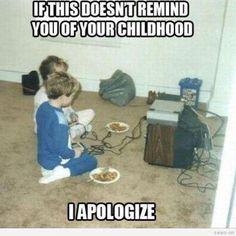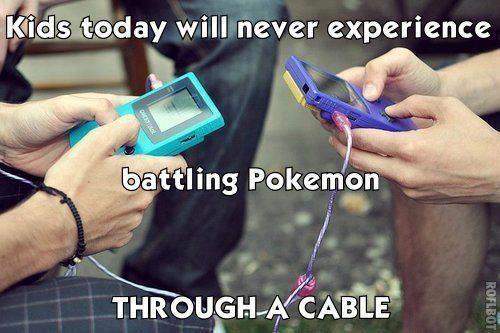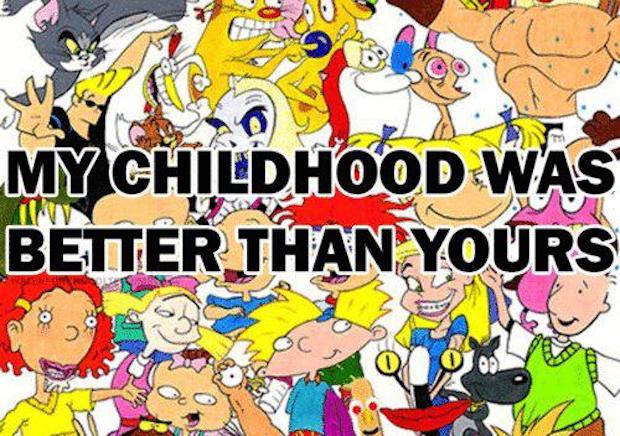The Nostalgia Trap
I teach literature and writing at the college level. Twice over the past week two students in two different classes—both around 19 or 20 years old—said something to this effect: “I feel bad for this next generation. They are so obsessed with their phones and technology.” And they both continued to berate a faceless group of kids from there. Yes, a 20-year-old was scolding someone else for being too attached to a cell phone. Really, almost everyone should be spoken with very sternly for their phone use, not just the new generation coming up; yes you my wife, yes you my mother, yes you my brother-in-law, yes you dude at a red light and yes me.
One of the greatest lessons I have learned in my adult life came from Raymond Williams. In his book The Country and the City, Williams writes that with each generation “an old order appears” and we tend to measure “contemporary change” against what we knew back when, the so-called old days. Each generation, each new era thinks that the future, when left in the hands of their children, will go to pot. But this feeling has been alive for centuries—Williams proves the point by scouring British literature for nostalgic prose from writers yearning for the pastoral countryside of the old days. There is a cycle and many will undoubtedly succumb, towering over the new generations, pitying them since they’ve failed to experience the old days. Williams writes that he “found no place, no period in which we could seriously rest.” That’s right, for centuries older generations have been looking down upon the age in which they are maturing and, in doing so, have been spitefully scorning those younger than them.
Of course, my students aren’t yearning for the English countryside like the writers Williams was studying, but the idea applies today and I can prove it. By scouring your social networks. How many memes do you come across like this:

So my kids are walking around with all of the information that ever existed on a tiny computer that fits in their pocket, yet they should be jealous of you sitting on the floor playing an 8 bit video game on a wood paneled TV while you take a break from eating that nasty looking goulash? If you’re within a decade of my age, your parents frowned upon you for spending hours with a Nintendo/Sega/PlayStation controller in hand, your mother probably saying, “move back from the TV, you’re going to ruin your eyes!” (ha, ha mom, still 20/20). Our mothers frowned on us for playing video games, now people are frowning on their kids for not playing Nintendo. Nice job creator of this meme.
I recently came across a post chiding people born after 1995 because they will never know the ritual of running home after school so they could rabidly watch reruns of Saved by the Bell (Really, someone born in 1994 would not really know what that’s like because my generation invented that, but whatev). I am here to tell you that Saved by the Bell is, was, and always will be a horrible representation of our culture and dwelling on it for nostalgia’s sake is a waste of time (however, if you want to watch it for fun and not be snooty about it, go ahead).
Anyway, where does nostalgia get us? I will tell you: it gets us six miserable comic book movies every year, TMNT reboots, remakes of Clash of the Titans, the Karate Kid, Arthur and Conan; studios are churning these things out because we, as a culture, can’t distinguish between good art, good pop culture, nostalgia, and mass produced swill. Yet, many people (at least in public on social networks) continuously shame the youth about the new influx of culture that they are interested in instead of showing them what is good about what we find important as a cultural artifact. And here we are, supporting remakes of our childhood, reliving yesteryear in a movie theatre 30 years later.
Want to know how deep the elder generation browbeating a younger generation goes? Recently, I was driving my grandfather home and had some jazz music playing from my phone (where would you 25-40 year olds who are so proud of their childhoods be without Bluetooth, amiright?). He said, with his face contorted in disgust, “What is this?”
I said, “Old Man River” by Freddie Redd.
He said, “Doesn’t sound like Ol’ Man River. Sounds like noise.”
No one has called jazz ‘noise’ in half of a century—my kids currently think that jazz is esoteric, dorky old man music, and not the counter culture phenomenon that it was. My grandfather still views it as something that “pesky youngsters” listen to and would prefer to a hear a straight ahead version in the big band style like Frank Sinatra, not the fine bop that Freddie Redd was pushing. Jazz is noise? It still cracks me up. I seem to remember hearing this often about the hip hop I was listening to as a kid. We can follow the lineage from a person that likes Frank Sinatra who would find Freddie Redd’s piano solos obnoxious, then, in turn, that fan of Freddie Redd may find Miles Davis’ Bitches Brew noise—then, all of those people may find rap music to be tasteless and so on down the line to whatever is being blared from any one of my daughter’s bedrooms right now.
It isn’t as if these memes are mocking kids for not reading a novel, a fine piece of literature or a great historical text that moved you in some way, nor are these tweets reproaching them for failing to watch a challenging children’s movie like Watership Down; they are usually referencing some awful iteration of culture that can just as easily be forgotten as heralded. Saying someone isn’t special because they don’t get some popular culture relic from your childhood (your special childhood that was oh so different from one’s decades before) is like saying you’re not special because you weren’t born with brown hair. They cannot control the time in which they were born, and are given the tools to exist by the people that raise them; and I mean “raise” in the communal sense, as in we are all raising each other, as corny as it may sound.
I guess in the end I am here to tell you that none of us are that special. In 80 years, you will be gone, and your great grand kids will be wearing a jetpack, being reprimanded by your kids because they don’t know the first thing about rolling around on a Segway. Or, maybe, as a culture, we can stop chiding kids for what they have, and try to introduce them to something positive from the past; perhaps approaching younger generations respectfully will help them to enjoy or appreciate what your past has to offer. Take a break from thinking that your childhood was better and be jealous that these kids will live longer than you, and will see things that you’ll never see. Maybe that’s why people retweet and Facebook these things: they feel so dead inside from buying plastic things that the only time they feel alive is in a nostalgic recollection of the plastic things they loved as a kid (plastic here is defined as mass produced media). Imagine Charles Dickens rolling over in his grave because you’re sitting on a beach in Mexico on an all-inclusive resort sipping a daiquiri and reading a free download of A Tale of Two Cities on a frigging Kindle (in fact, if you read on Kindle and have ever shared one of the above memes, you’re a hypocrite). Only in this post-industrial, uber-capitalist society would someone think they are better than someone because


